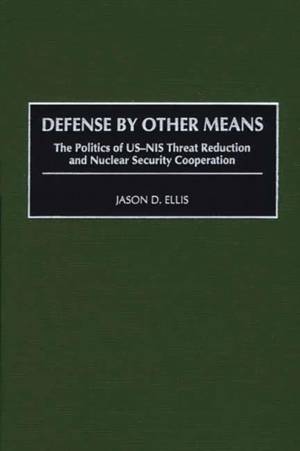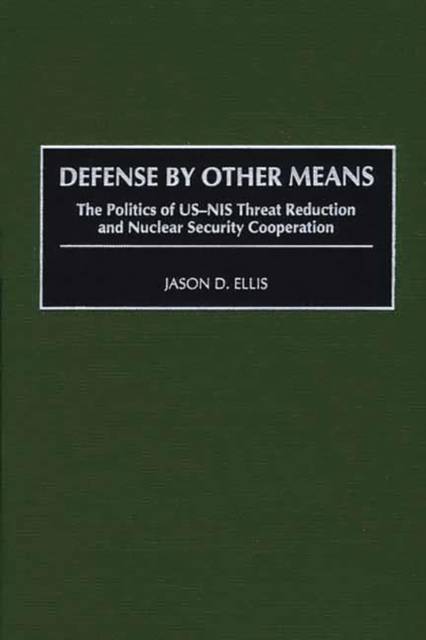
- Afhalen na 1 uur in een winkel met voorraad
- Gratis thuislevering in België vanaf € 30
- Ruim aanbod met 7 miljoen producten
- Afhalen na 1 uur in een winkel met voorraad
- Gratis thuislevering in België vanaf € 30
- Ruim aanbod met 7 miljoen producten
Defense by Other Means
The Politics of Us-NIS Threat Reduction and Nuclear Security Cooperation
Jason D EllisOmschrijving
The quest to limit nuclear weapons was a notable feature of the U.S.-Soviet relationship during the Cold War. Following the collapse of the Soviet Union, in what history may come to judge as the Clinton administration's greatest foreign-policy achievement, an agreement was reached with key former Soviet republics to eliminate their nuclear weapons. Ellis provides a timely and authoritative analysis of the Cooperative Threat Reduction (CTR) program, which removed nuclear arsenals equivalent to the combined stockpiles of Britain, France, and China, and ultimately made a significant contribution to U.S. national security at a relatively small cost.
In a fascinating examination of the interplay of domestic and foreign policy, Ellis traces the debates within Congress and the foreign policy establishment, as well as the situation on the ground in Ukraine, Belarus, and Kazakhstan, and he details the implementation of the CTR program. He concludes with a look at the current challenges, especially the thousands of non-strategic nuclear warheads still in Russian possession, and prospects of ongoing CTR efforts.Specificaties
Betrokkenen
- Auteur(s):
- Uitgeverij:
Inhoud
- Aantal bladzijden:
- 256
- Taal:
- Engels
Eigenschappen
- Productcode (EAN):
- 9780275969400
- Verschijningsdatum:
- 30/08/2001
- Uitvoering:
- Hardcover
- Formaat:
- Genaaid
- Afmetingen:
- 155 mm x 247 mm
- Gewicht:
- 580 g

Alleen bij Standaard Boekhandel
Beoordelingen
We publiceren alleen reviews die voldoen aan de voorwaarden voor reviews. Bekijk onze voorwaarden voor reviews.











